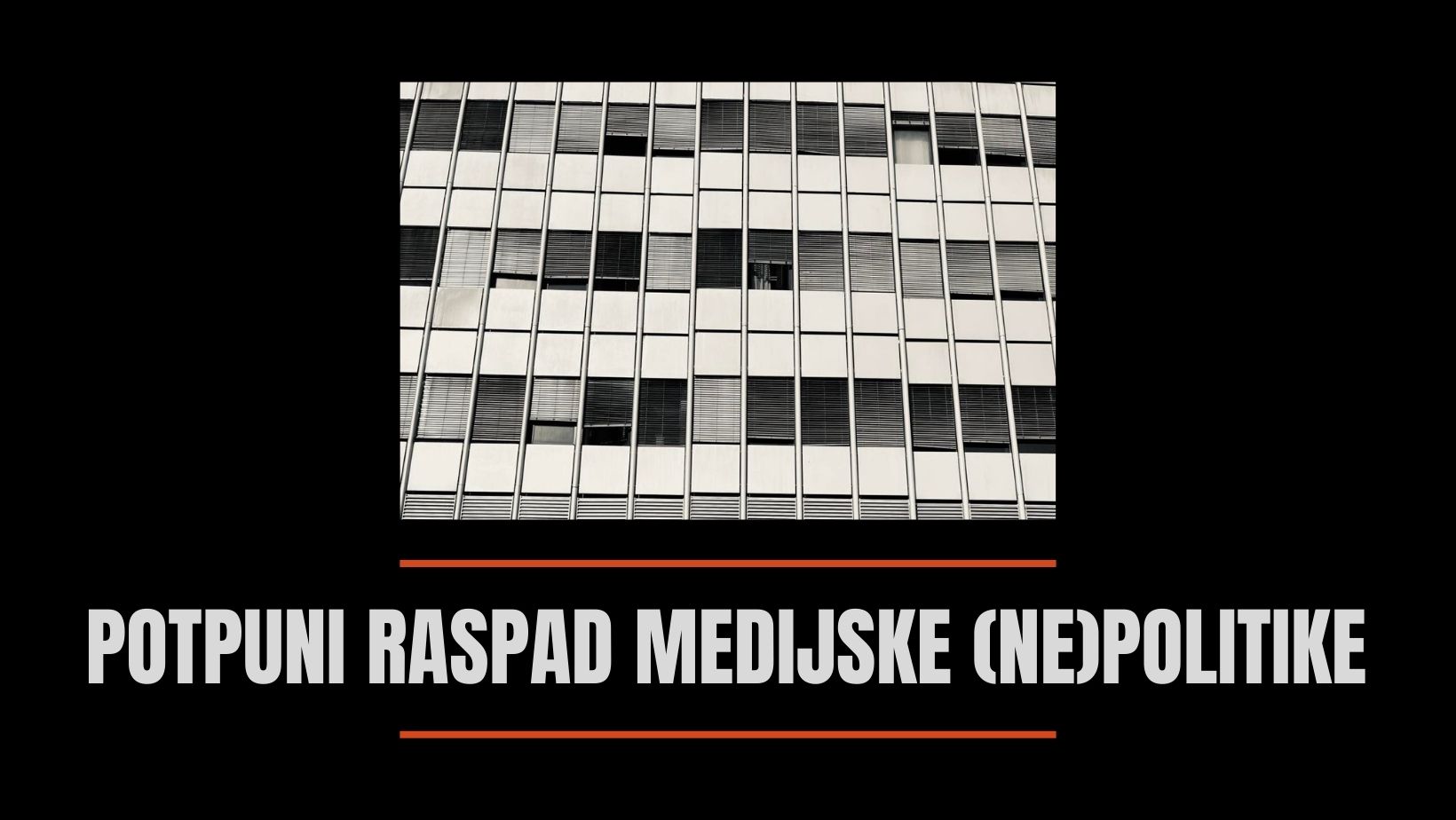
By: Maja Sever
In the oval hall of the Esplanade Hotel, those who nonchalantly wear sneakers with suits are attending a three-day “dynamic” conference, discussing the future and the development of new media forms. Excellent sound systems, soft purple lighting, while muffled sounds of Prosecco glasses and the scent of shrimp in avocado cream waft in from the lobby, where participants await relaxed “networking.” On the program, under the patronage of HRT, is a panel titled “Alliances: Join Forces for a Stronger Future.” Just a few kilometers south, in Prisavlje, the reality is completely different.
In HRT’s B10 building, which has not been renovated since the 1980s, there is no soft lighting, not even in the Dnevnik studio, just as the management has no plans for joining forces for a stronger future. The management’s future plans do not include a cameraman who, after 20 years of work, earns less than €1000, or journalists who, after 25 years of service, are still working on beginner wage points. Nor do they include a makeup artist who works eight hours a day without the right to a break and barely earns above the minimum wage.
Every time the government raises the minimum wage, there is a crisis at HRT management: they must again find a way to increase salaries for hundreds of employees falling below the minimum wage threshold. At the same time, outsourcing of technical services is growing at the same speed as the despair of workers who, despite miserable conditions, keep the program alive. Journalism left Prisavlje long ago, while editorial policies and staffing decisions have driven away most professionals or forced them into invisible corners of the program.
These days, my colleague Jagoda Bastalić is once again in the running for one of the journalism awards, yet simultaneously a message arrives: “Please share the promo for Labirint; we have a great topic, but the broadcast slot is at midnight.” Today, I learn that, likely for the first time in history, the Master Cycle concert of our symphony orchestra will not be broadcast. It seems there is no one to do it. For many subscribers and loyal listeners of the HRT Symphony Orchestra, this decision represents a deep disappointment. At a time when cultural offerings are crucial for preserving identity and community, denying a radio broadcast can be seen as a serious step backward.
HRT’s programming lacks pluralism, openness, and investigative journalism, far from its mission and obligations as a public media service. Now comes the second phase: selling off remaining resources. While the director and board members publicly acknowledge that salaries are disgracefully low, that they cannot retain or hire new people, their negotiations over material rights show contempt for those working for or around the minimum wage. Prisavlje is a completely divided world. A very small part of it is as the public perceives it: high salaries, good sneakers, and little work. Most employees honestly do their jobs, hoping for at least a Christmas bonus (which, as things stand, they won’t get) and barely making ends meet.
For years, such management of HRT has enjoyed full political support from Runjaninova and Banski dvori. The so-called Ministry of Culture and Media shows no interest in the state of the public media service or the media as a whole. I say so-called because the recent departure of Jasna Vaniček-File from the Media Directorate to the Agency for Electronic Media clearly shows that media is just a word added to the ministry’s name, likely because Europe expects it, but genuine interest, effort, and any meaningful media policy do not exist.
The Ministry remains leaderless in the Media Department at a time when it is essential to implement the European Media Freedom Act and completely reform media legislation. Let me remind you that Minister Obuljen Koržinek, a year and a half ago, after withdrawing the scandalous draft Media Act, announced a new proposal by the end of August. A second August has passed, and no draft Media Act remains. By August 2025, the government must implement the European Media Freedom Act into national legislation, meaning all media laws need to change, yet there’s no sign that anyone is doing anything about it. The only thing the minister announced somewhere is forming a working group. They will form a working group.
Article 5 of the European Media Freedom Act mandates that stable funding and an independent selection of public media service management bodies must be ensured at the national level. This means that the government must immediately amend the HRT Act, according to which all HRT’s management and supervisory bodies have been elected by a simple political majority in Parliament for years. HDZ promised this in two election programs, but that document has probably been misplaced… Meanwhile, the crisis of the public media service deepens. The sell-off of resources, poor staffing policies, and the inability to retain professionals call into question HRT’s long-term mission and public trust.
While workers in Prisavlje are posting posters calling for dignified work and negotiating for survival, in Esplanade, the future is being discussed over avocado cream and light Prosecco. Two worlds—one worth fighting for. Because these people can and know how to create good programming; they just need a little respect and a salary that allows them to survive the month.